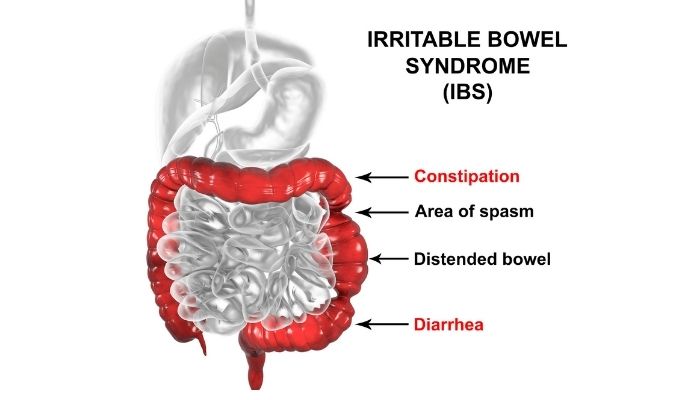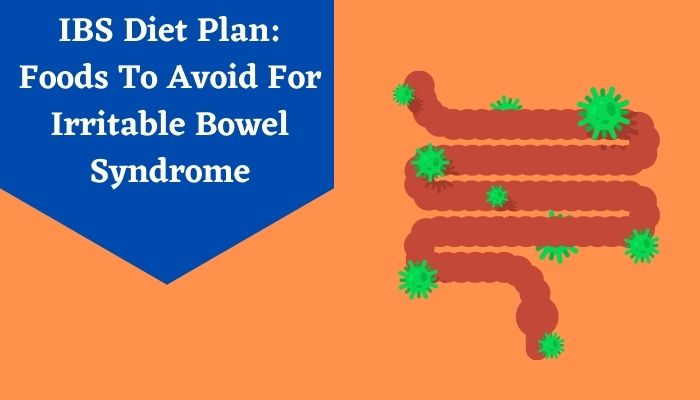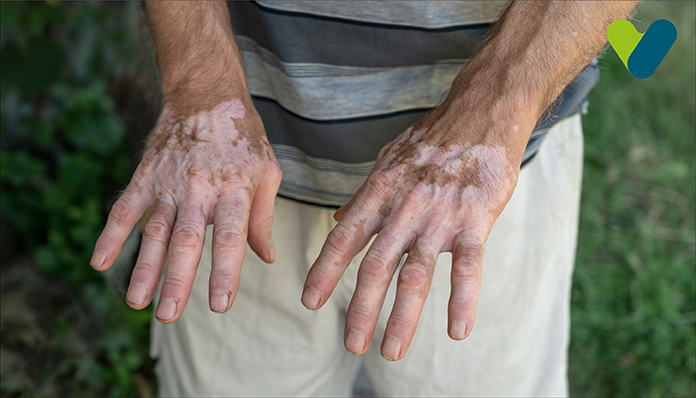Ms. Ruchika (33-years-old) works in an IT company in Pune. Ruchika is an ardent food lover and she loves to eat all types of foods. Over the past few days, Ruchika has noticed some changes in her bowel movement and also experienced lower abdominal pain. She consulted a doctor instead of taking over-the-counter medications. The doctor told her that she is suffering from IBS and should make some changes to her diet. The doctor advised a list of foods to avoid with IBS. In this article, we are going to discuss what types of foods you should avoid if you have IBS. Let us first understand what is IBS and what are the worst foods for IBS?
What is IBS?
Irritable bowel syndrome or IBS is a disorder where you may feel frequent abdominal symptoms, like diarrhea, constipation, bloating, and cramps. Though the exact cause of IBS is not known, many researchers have claimed that a person’s lifestyle and diet changes can drastically improve the condition.
Though the exact cause of IBS is not known, many researchers have claimed that a person’s lifestyle and diet changes can drastically improve the condition. Dietary Changes in IBS
People with IBS should follow the below-mentioned diet plans to manage their disorder. 1. Eat More Soluble Fiber: Insoluble fiber can only aggravate your IBS symptoms, but on the other hand, soluble fiber makes stool easier to pass. 2. Eliminate Gluten, Lactose, or Both: If you discard all these gluten and lactose-rich food items, then it will improve your symptoms 3. Limit Hard-to-Digest Carbohydrates: Some foods possess high levels of carbs that doctors call FODMAPS (fermentable oligo-, di-, and monosaccharides and polyols). Several studies have indicated that consuming high-FODMAP foods may degrade the symptoms of IBS, such as:- Bloating
- Stomach pain
- Constipation, diarrhea, or both
IBS Foods To Avoid
Let’s take a look at your IBS diet plan or what food items you should discard if you have IBS.
1. Insoluble Fiber
Two types of fiber are found in food items and they are soluble and insoluble. Soluble fiber is concentrated in beans, fruits, and oat products. On the other hand, insoluble fiber is primarily whole grain products and vegetables. Soluble fiber is the best choice for people who have IBS. The American College of Gastroenterology (ACG) also recommends taking soluble fiber supplements like psyllium for IBS. Insoluble fiber like wheat bran may make the pain and bloating worse.2. Gluten
Gluten is commonly found in food items like rye, wheat, and barley. This may make the symptoms of IBS more prominent. Some people have a serious immune reaction to gluten known as celiac disease. Some may suffer from gluten intolerance. These conditions may aggravate the symptoms associated with diarrhea-dominant IBS. A study was published in 2015 and according to it; a gluten-free diet will improve your IBS symptoms. If you notice that gluten is making your symptoms worse, then you must go for a gluten-free diet. These days, the markets are crammed with many gluten-free products that will help you in managing your IBS. This is the time to substitute your pizza, pasta, cakes, or cookies with gluten-free options. These days, you may find many whole and nutritious alternatives to gluten-containing grains and flours like- Quinoa
- Sorghum
- Oats
- Buckwheat
- Almond flour
- Coconut flour3
3. Dairy
Dairy items will enhance the problems of people who have IBS and therefore they are counted as in the list of irritable bowel syndrome foods to avoid. Since dairy products are high in fat, hence they may lead to diarrhea. You may consume low-fat dairy items to minimize your symptoms. Many people with IBS have claimed that milk may aggravate their symptoms. If you experience that dairy products are causing uncomfortable digestive problems, you can consider dairy alternatives like plant milk and soy-based cheese. You can replace your dairy items with calcium-rich foods like:- Greens
- Beans
- Nuts
- Sardines
- Seeds
4. Beans and Legumes
Lentils and peas are amazing sources of protein and fiber, but they can make your IBS symptoms worse. They come up with certain compounds called oligosaccharides that are resistant to digestion by intestinal enzymes. Though beans may improve your constipation, they also increase:- Gas
- Bloating
- Cramps
5. Alcohol
Alcoholic drinks may make your symptoms more prominent if you have IBS. Alcohol may lead to dehydration that can affect digestion. Beer is not acceptable because it contains gluten, and wines and mixed drinks also contain high amounts of sugar. If you restrict your alcohol consumption, it will minimize the symptoms of IBS. If you need to drink, then consider a gluten-free beer or a drink mixed with plain seltzer and without artificial sweeteners or added sugar.6. Chocolate
Chocolate bars and chocolate candy can trigger your IBS and therefore they are considered as one of the foods to avoid with IBS. Chocolate products contain high fat and sugar and also come up with lactose and caffeine. People with IBS may experience constipation after eating chocolate. Some vegan chocolate options are available in the markets that are more effective for IBS people.7. Processed Foods
Ultra-processed foods like chips, processed meats, deep-fried foods, frozen foods, etc. may cause various health problems to people. These foods contain additives or preservatives that might trigger IBS. A study was conducted in 2019 and according to it; consuming 4 servings of ultra-processed foods per day will make you more susceptible to IBS.Potassium Rich Foods to Avoid
- Bananas
- Prunes
- Oranges
- Lentils
- Spinach
- Tomatoes


